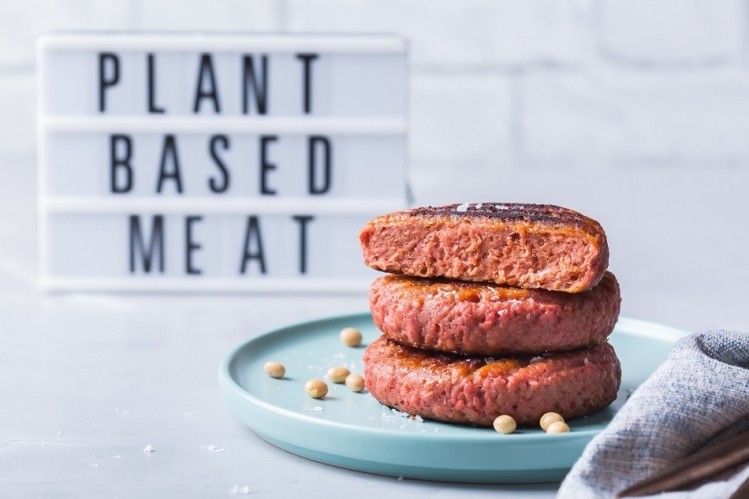Opinion: it isn’t necessary to take an all-or-nothing approach to plant-based eating to reap the health benefits
With over a third of Ireland’s greenhouse gas emissions coming directly from agriculture, and an amplified global focus on food and climate at this week’s UN Climate Summit (COP27), here are five things to know about plant-based diets.
There are many different versions of a plant-based diet

A plant-based diet is one based mainly on foods from plants – like fruit, vegetables, grains, pulses, nuts, seeds, oils, herbs, and spices. Animal produce is reduced or eliminated from the diet, with animal proteins (like meat and dairy) replaced with plant protein alternatives (like pulses and tofu). Sometimes plant-based eaters are guided by specific sets of dietary rules, like vegetarianism (where meat is not consumed but eggs, dairy products, and honey maybe) or veganism (where animal produce is avoided entirely).
It’s also possible to commit to a plant-based diet without following a rigid set of rules. Flexitarians – those actively trying to reduce their intake of animal products – are the fastest-growing category of plant-based eaters, with 30% of European consumers identifying as such in 2021.
Plant-based diets are beneficial to health

A diet based on whole grains, pulses, fruit, vegetables, nuts and seeds should meet most dietary recommendations worldwide for its 5+ portions of fruit and vegetables daily, high dietary fiber intake, and low saturated fat intake. This, in turn, should help with maintaining a healthy weight, reducing the risk of major non-communicable diseases: type 2 diabetes, cardiovascular disease, and certain cancers.
Eating a wide variety of plant-based foods is also hugely beneficial to the gut microbiome (the trillions of microorganisms that live in our large intestine). Prebiotics – plant-based foods that help our beneficial gut bacteria thrive – include fruit (like apples, pears, and dates), vegetables (like leek, garlic, and pulses), and many other plant foods (like cashews, pistachios, and wheat bran). And the more variety the better - eating 30+ plant foods per week maximizes the type and quality of bacterial strains in the gut, supporting gut health, immunity, stress responses, and more.
While most nutrients are abundant in a plant-based diet, some need special consideration, and vegans are at higher risk for specific micronutrient deficiencies. The British Dietetic Association and The Vegan Society have jointly prepared practical resources outlining the key nutritional considerations for those considering a vegan diet, which are well worth a read. Tools like the planetary diet model developed by the EAT-Lancet Commission can also help with planning a diet that’s both nutritious and sustainable.
Plant-based food production is more sustainable

The production of animal foods is typically far more resource heavy, and results in considerably higher greenhouse gas emissions, than the production of plant foods. In Ireland last year, over 37% of greenhouse gas emissions came directly from the agriculture sector, mainly connected to livestock and dairy farming. In America, it’s estimated that if everybody had one meat-free meal per week, it would be the emissions equivalent of taking 5 million cars off American roads annually.
However, when it comes to sustainability, not all plant foods are created equal. Californian almonds are notorious for their water demands, with production of a single nut involving a 12L water footprint, making them second only to beef in terms of water usage. To be truly sustainable, plant foods need to score well across a number of environmental measures – like water use, water pollution, land use and greenhouse gas emissions – at each stage of the food supply chain, from production to waste disposal.
Small, individual shifts towards plant-based diets are worth it
Most people consuming a typical Western diet would benefit from replacing even some of their animal protein with healthy, plant-based options. It isn’t necessary to take an all-or-nothing approach to plant-based eating to reap the health benefits. From a sustainability point of view, individual shifts towards plant-based eating can collectively have positive effects on levels of emissions and use of our land and water resources.
Additionally, individual shifts towards plant-based eating – when widely enough adopted – send a societal message about the direction of change consumers wish to see, which in turn can influence decision-makers.
Regulation around plant-based foods needs to change

A more positive and comprehensive regulatory framework is needed to better support the plant-based food sector going forward. Small changes to current EU food labelling and marketing standards would make plant-based products more available and accessible to European consumers. Including minimum criteria for plant-based foods in public food procurement would facilitate a shift to plant-based diets on a larger scale.
Meaningful supports for plant-based innovation are essential to allowing the sector to thrive. And economic sustainability must remain a key focus, ensuring that the livelihoods of local growers and farmers are preserved, rather than lost, in any food systems transition.









